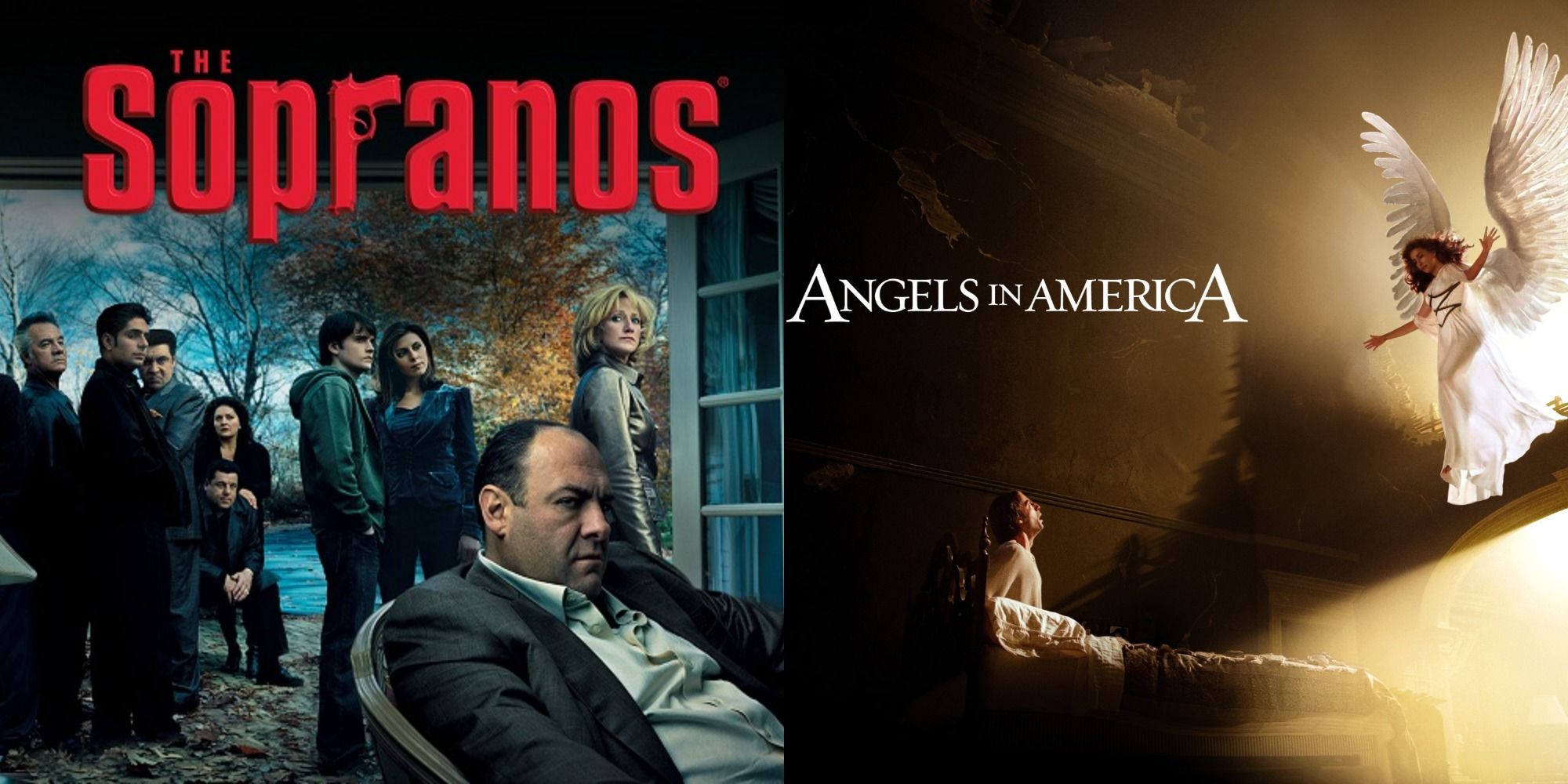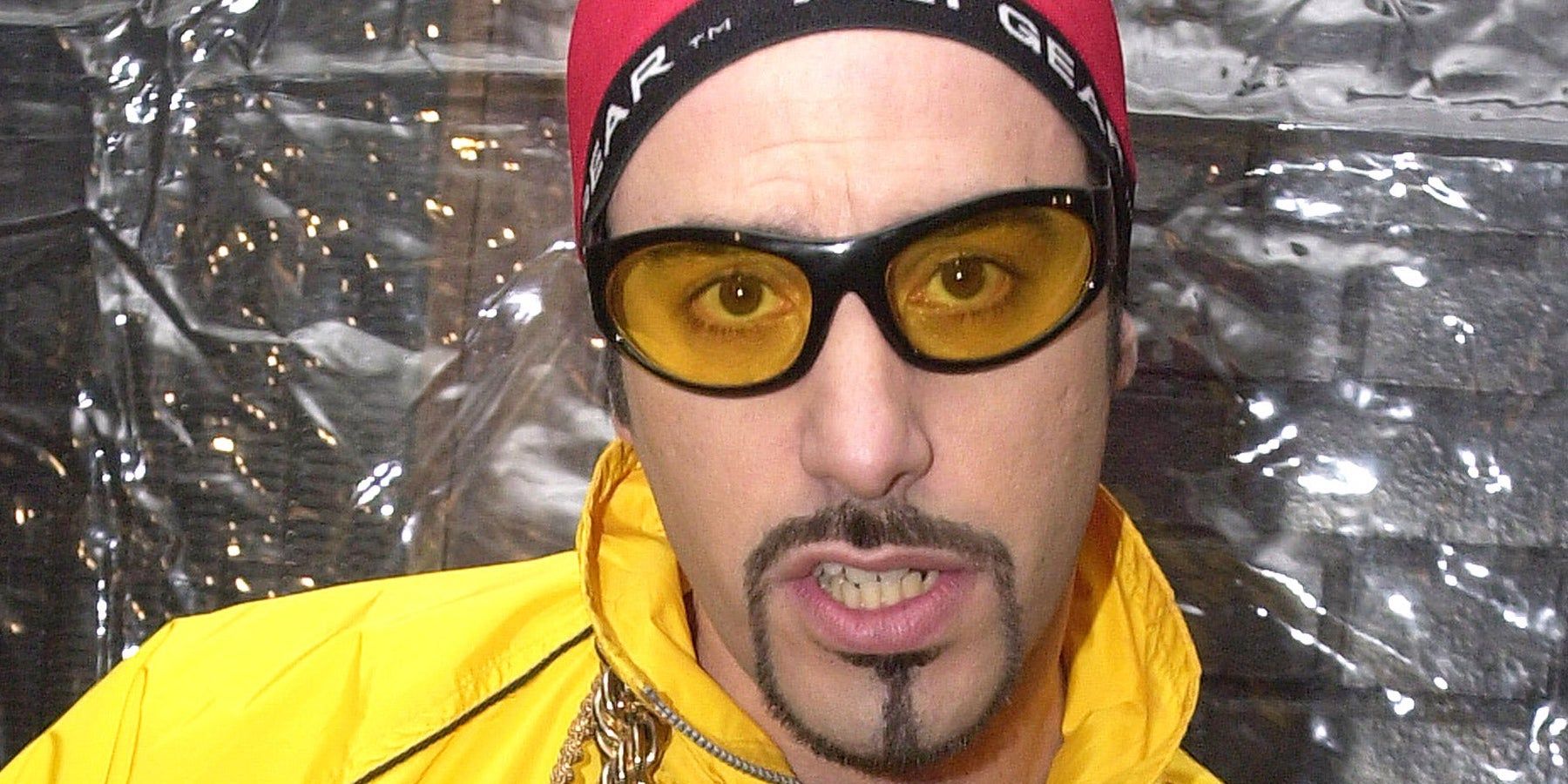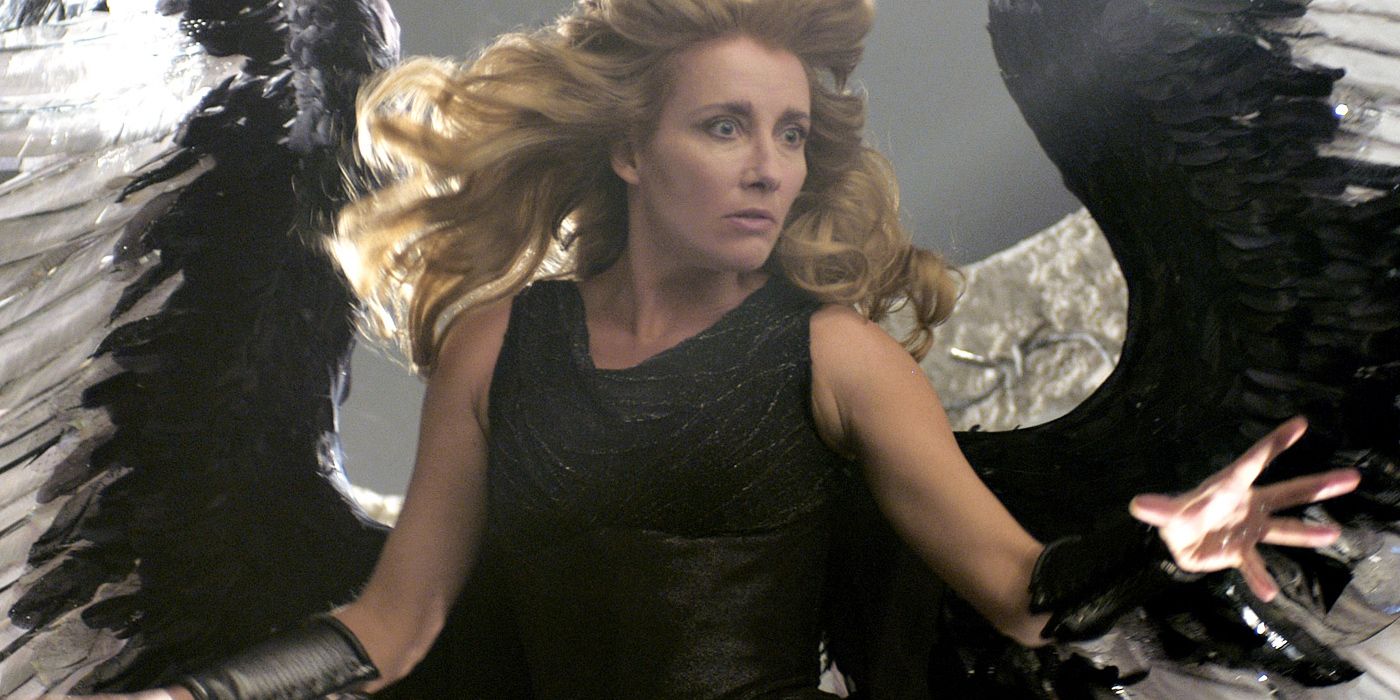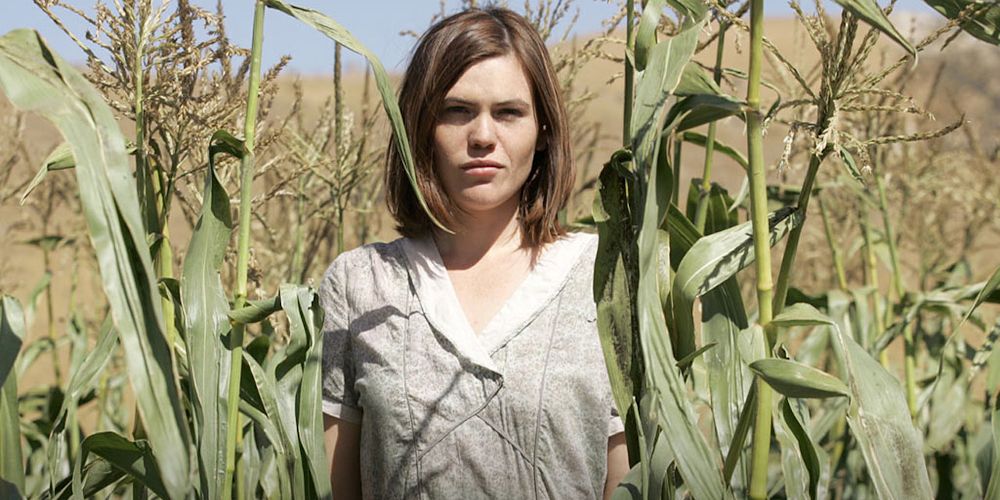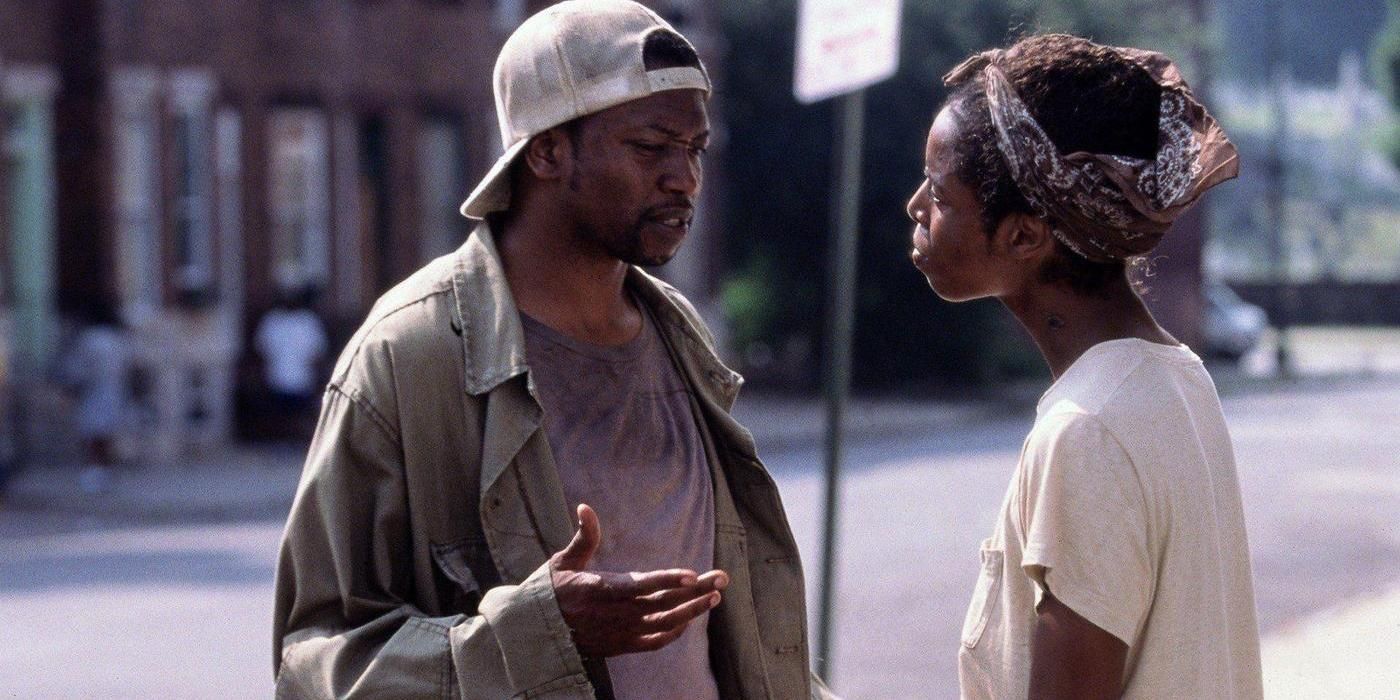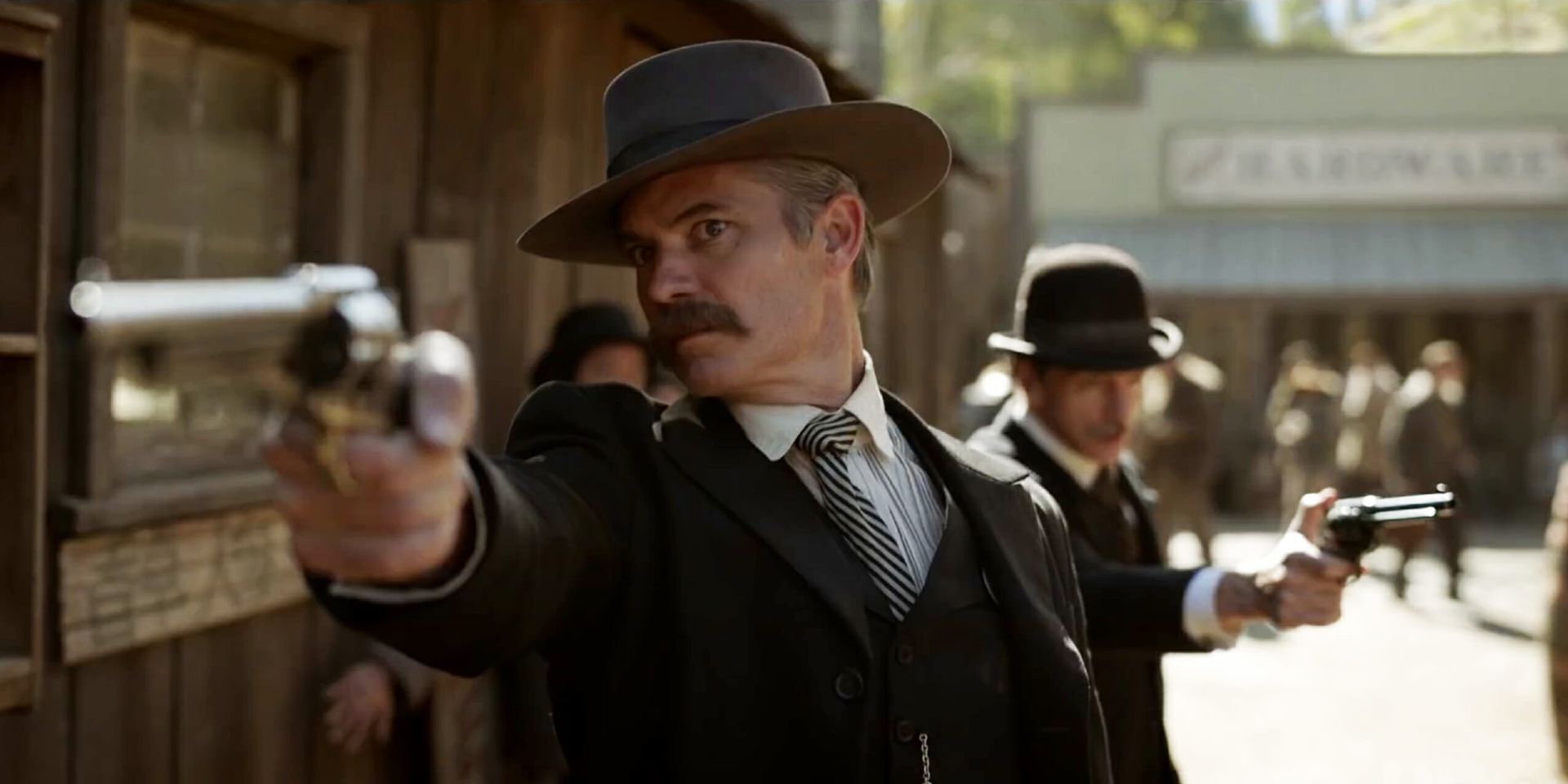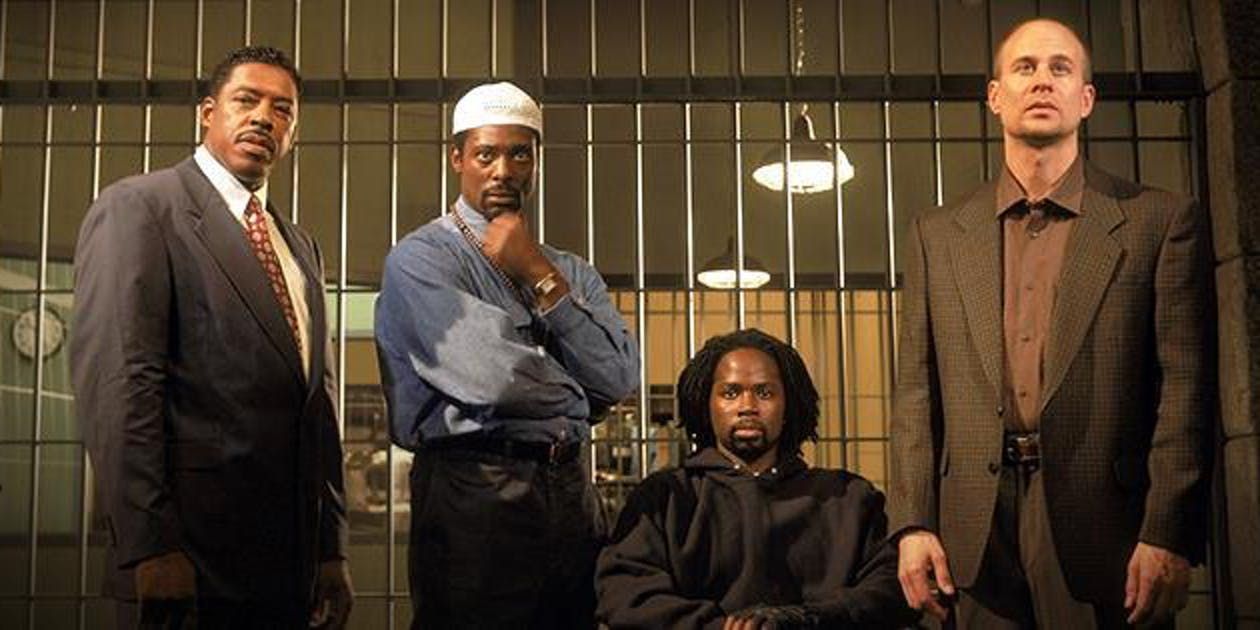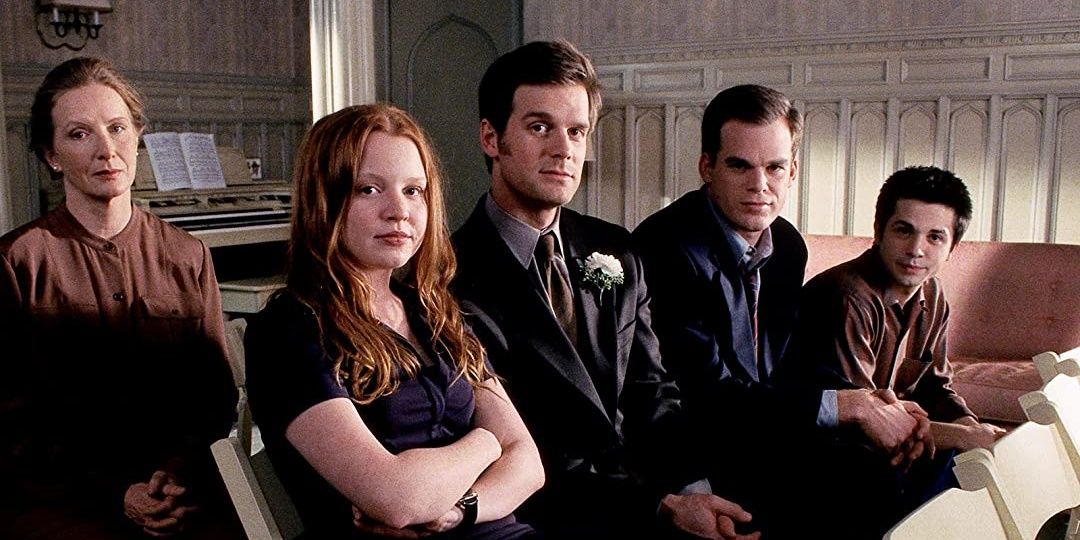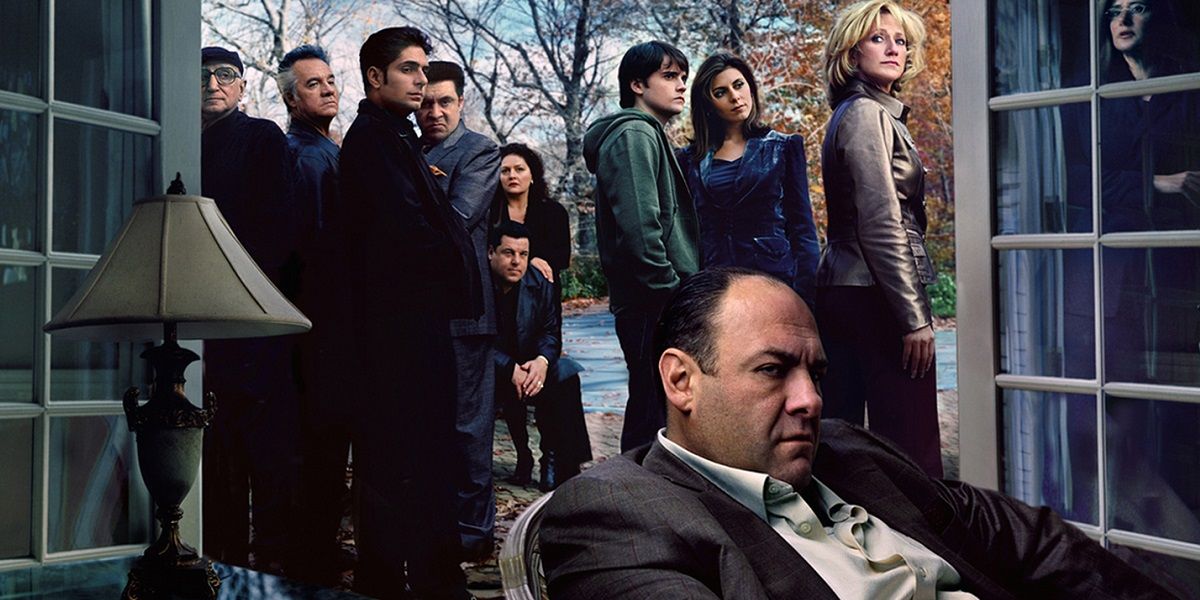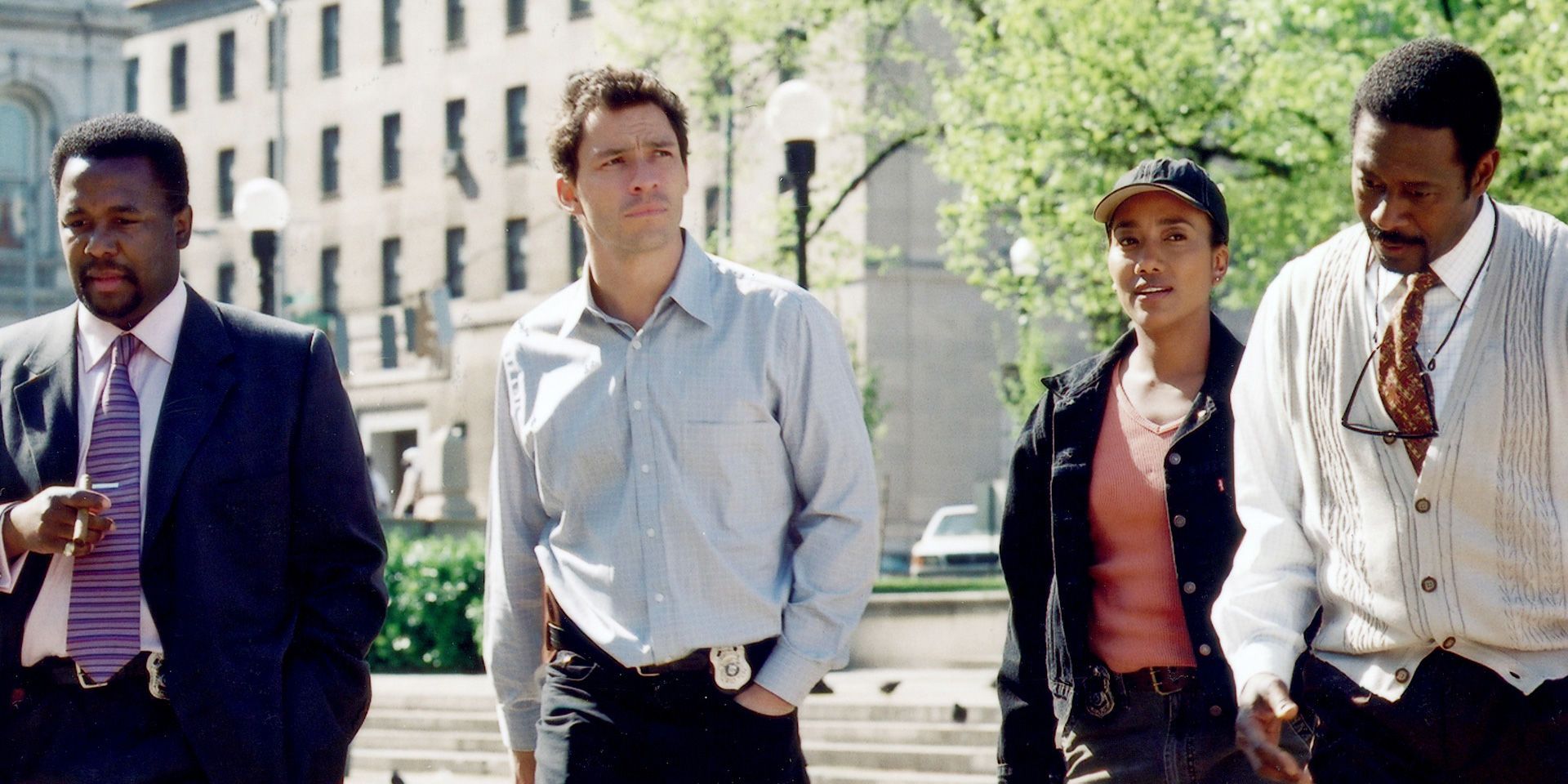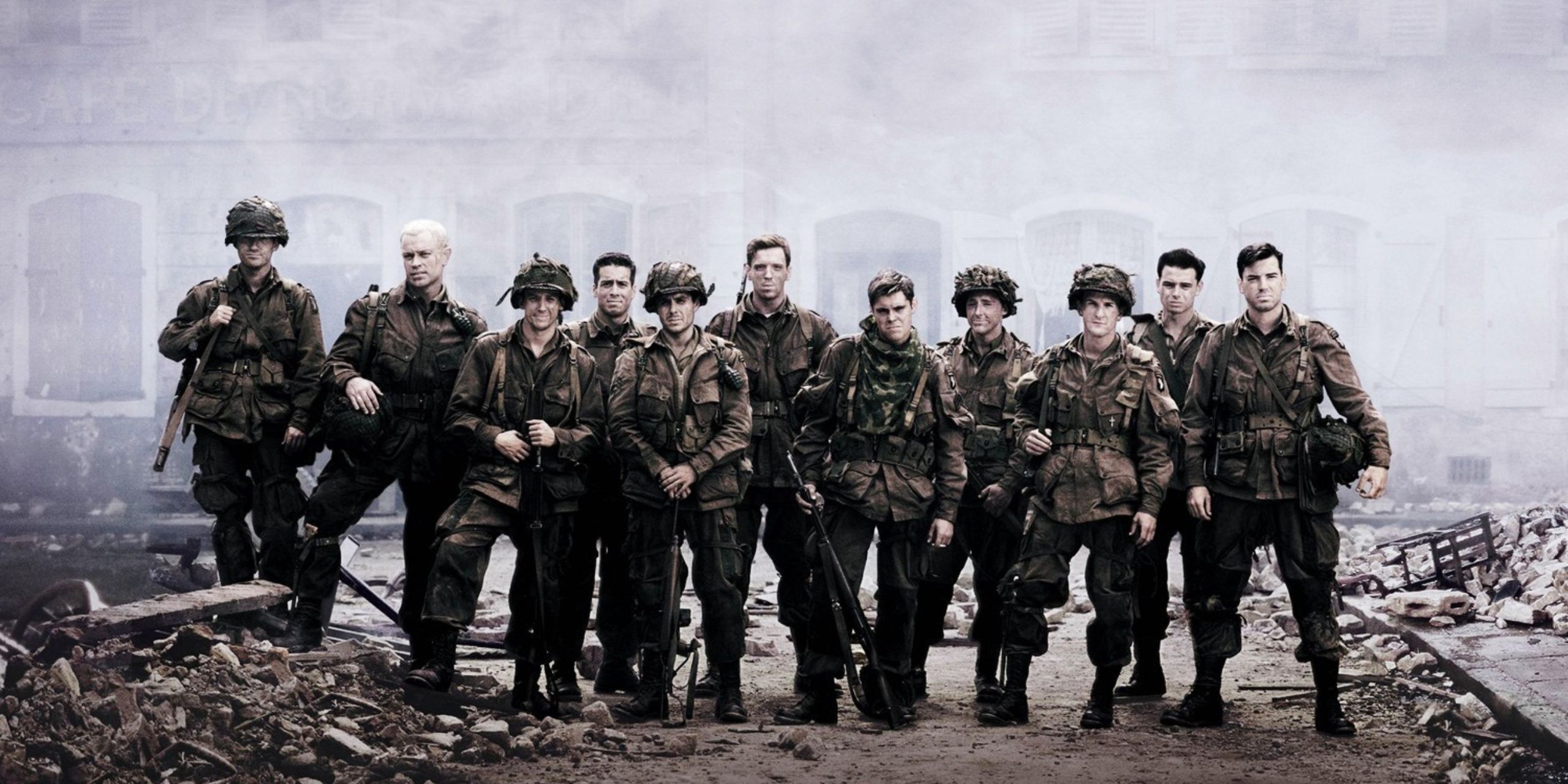Before the Streaming Era, there was Peak TV. And before Peak TV, there was HBO. During the turn of the 21st century, the premium cable network transformed the nature of television as we know it. Shows went from having mostly episode-contained plots to season-long arcs, causing characters to become more complex and relatable.
While a few of these shows carry the same name recognition they did in the early 2000s, like Curb Your Enthusiasm, many faded from the spotlight as other networks started making similarly styled programs. These are the best shows from the early 2000s that helped make HBO a mainstay for appointment viewing to this day.
Da Ali G Show (7.9)
Now a world-famous comedian and provocateur, Sacha Baron Cohen's program Da Ali G Show brought the actor's exuberant characters to the U.S. for the first time. Originally broadcast on the U.K.'s Channel 4, the second and third seasons of the show aired exclusively on HBO in 2003 and 2004.
Known for his outrageous statements, Cohen used the characters of Ali G (a British rapper), Borat Sagdiyev (a Kazakh TV journalist), and Brüno Gehard (a gay Austrian fashion reporter) to stir up reactions from public figures and the general public on camera. The popularity of Da Ali G Show led to the production of three movies in the 2000s based on each of Cohen's characters: Ali G Indahouse, Borat, and Brüno.
Angels In America (8.2)
Based on the Pulitzer Prize and Tony award-winning play of the same name, the 6 part miniseries boasted a cast of Al Pacino, Meryl Streep, and Emma Thompson, amongst other recognizable names. Set during the 1980s, Angels in America follows an eclectic group of characters dealing with the AIDS crisis on their own terms through parallel storylines.
The show primarily focuses on Prior Walter (Justin Kirk), a gay man with AIDS who is visited by an angel. While some critics thought the play was unadaptable, the majority of viewers were satisfied with the $60 million production. In fact, Angels in America went on to become the most-watched made-for-cable film of 2003. At the Emmys, Angels in America swept every major category and racked up 11 wins overall, beating the record of 9 wins previously held by Roots.
Carnivále (8.4)
Transpiring during the Great Depression in the Dust Bowl, Carnivále follows two slowly converging storylines of a traveling carnival and a preacher from California. Its pilot episode brought in 5.3 million viewers, the highest debut for an HBO show ever in 2003, largely helped by the lead-in of Sex and the City.
With 17 actors receiving star billing for the first season, it was rare for a show to have that large a main cast at the time. Seen by critics as a predecessor to shows like Game of Thrones and Westworld, it took multiple seasons for complex storylines in Carnivále to fully pay off. While show creator Daniel Knauf had planned for Carnivále to run 6 seasons, HBO canceled it in 2005 after its second season due to declining viewership and its expensive budget.
The Corner (8.6)
Created in 2000 by David Simon and Ed Burns, now frequent collaborators with HBO, The Corner follows the life of a family living amid the drug markets of West Baltimore. This 6 part miniseries is based on the book of the same name, written by Simon and Burns after a year of research.
While the show won 3 Emmys, including Outstanding Miniseries, it didn't translate to high viewership. Outside of critical acclaim, The Corner is most notable as the predecessor to The Wire, which was inspired by the miniseries and began airing 2 years later. Many actors from The Corner, including Clark Peters, Reg E. Cathey, and Lance Reddick, would also go on to appear in The Wire.
Deadwood (8.6)
Taking place in the town of the same name, Deadwood follows the residents of a small camp in the Dakota Territory during the 1870s. With many characters based on real-life figures, show creator David Milch took care to include historical truths alongside any creative liberties with the plot and characters.
Led by Timothy Olyphant and Ian McShane, Deadwood ran for 3 seasons between 2004 and 2006. McShane's character Al Swearengen notably became the subject of controversy, due to the frequency of his cursing each episode. Plans for a 4th season were scrapped in favor of two 2-hour specials, which never went into production. However, Deadwood: The Movie eventually came to air in 2019, after years of being stuck in development.
Oz (8.7)
The first hour-long TV series produced by HBO, Oz follows the lives of inmates and officers at the fictional maximum security prison Oswald State Penitentiary. The show ran for 6 seasons between 1997 and 2003 and starred the likes of Ernie Hudson, Rita Moreno, and J.K. Simmons.
Unlike other TV shows at the time, Oz had the freedom of premium cable to explore controversial topics that weren't allowed on advertiser-supported networks. The show was lauded for allowing criminal characters to have moments of humanization, setting the groundwork for modern antiheroes. According to Dean Winters, who played Ryan O'Reilly, Oz even encouraged the likes of Vince Gilligan to create Breaking Bad.
Six Feet Under (8.7)
Following his Best Original Screenplay Oscar win for American Beauty, writer Alan Ball's next big project Six Feet Under ran from 2001 to 2005. Following the Fisher family, who run and operate a funeral home, each Six Feet Under episode opens with a death that goes on to frame the themes for the remainder of its run time.
Similar to Oz, the Six Feet Under creative team was given the freedom to handle the topics of the show however they wanted to. According to Ball, the HBO entertainment president at the time even asked him to make it darker than he originally intended. As a result, the show was able to explore subjects like grief, human mortality, and the death industry without having to worry about going too far.
The Sopranos (9.2)
For many, The Sopranos is considered to be the greatest TV show of all time. Millions of people tuned in to watch it each week, which was unheard of for a premium cable network during its airing. Throughout its run from 1999 to 2007, The Sopranos consistently broke its own viewership records, almost doubling its audience between the first and second season.
The show follows Tony Soprano (James Gandolfini), a New Jersey mafia boss who collects dues, whacks mobsters, and goes to therapy. What set The Sopranos apart from other mob dramas, however, was its willingness to broach sensitive topics like mental health, gender roles, and the status of Italian-Americans in the 21st century, all while constantly pushing what it could get away with each episode on HBO. Its finale continues to be one of the most talked-about TV topics even 14 years later.
The Wire (9.3)
Following his critical success of The Corner, David Simon went on to create his landmark show The Wire, which aired from 2002 to 2008. Set in Baltimore, Maryland, each season explores an institution of the city in relation to law enforcement (the drug trade, port system, city government, schools, and print news).
While The Wire received nearly universal acclaim when it aired, it failed to draw the same viewership numbers of other popular crime dramas at the time. However, the show still marked the beginning of Idris Elba's path to stardom and created one of the most memorable characters of all time: Omar Little (Michael K. Williams). Many still regard it as the most accurate depiction of Baltimore life to ever grace the small screen.
Band Of Brothers (9.4)
Created by Tom Hanks and Steven Spielberg in 2001, the first episode of the 10 part miniseries drew 10 million viewers and received universal acclaim. Dramatizing the real-life "Easy Company", Band of Brothers covered the unit's activity from the beginning of jump training to the end of World War II.
Hoping to maintain historical accuracy, the production team invited veteran members to set, and got their approval before each episode aired. Each episode notably cost $12.5 million to produce, pushing the limit of what television budgets could amount to. Nominated for 20 Emmys, Brothers had a who's who of now-renowned actors in its extended cast, including Tom Hardy, James McAvoy, and Simon Pegg, to name a few.

